|
Herbert Hoover - Commission for Relief in Belgium - Ieper - 15/03/2013
After attending the Last Post at the Menin Gate, the exhibition 'Herbert Hoover and the Commission for Relief in Belgium' was officially inaugurated at the in Flanders Fields Museum.
Na het bijwonen van de Last Post onder de Menenpoort, werd in het In Flanders Fields Museum de tentoonstelling 'Herbert Hoover and the Commission for relief in Belgium' officieel geopend.
Verwelkoming door Piet Chielens, conservator van het museum.
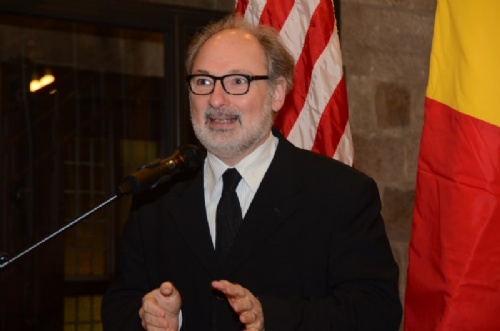
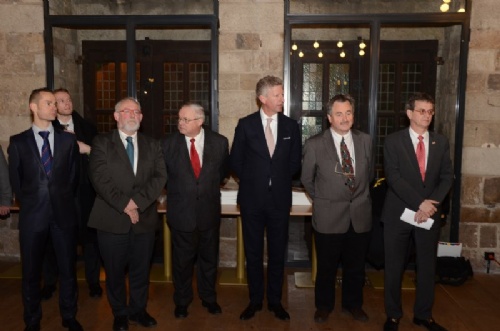
Toespraak door Jef Verschoore, schepen van toerisme en voorzitter van het In Flanders Fields Museum.
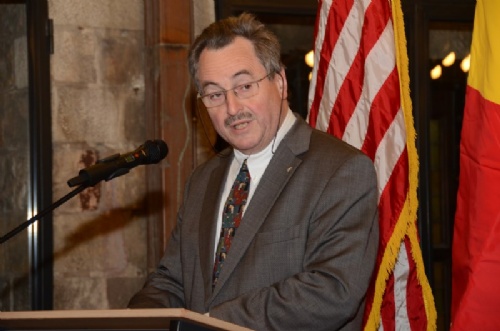
Veel volk op de opening.
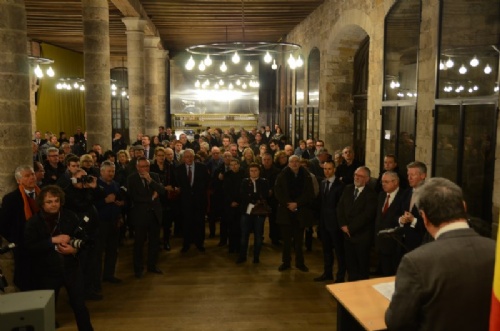
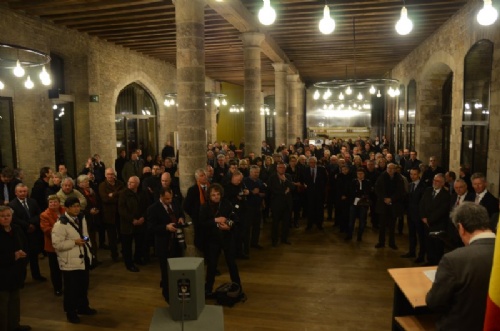
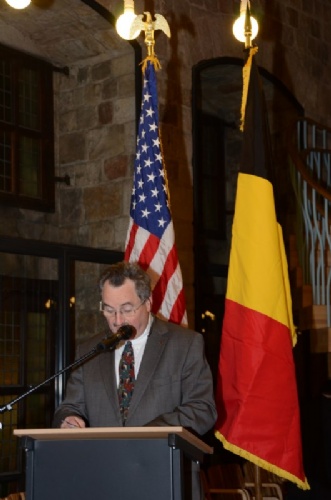
Daarna was het de beurt aan de Amerikaanse Ambassadeur Howard Gutman.
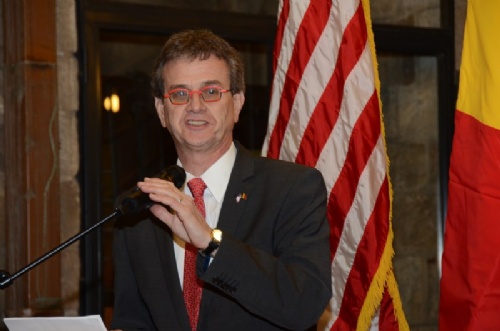
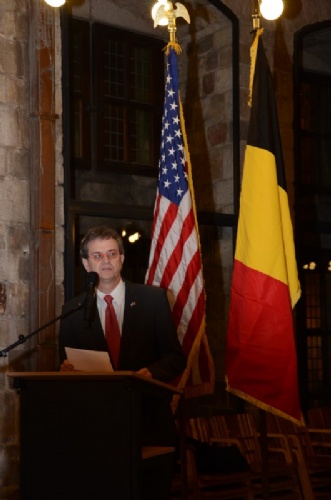
En tot slot minister van Defensie Pieter De Crem.
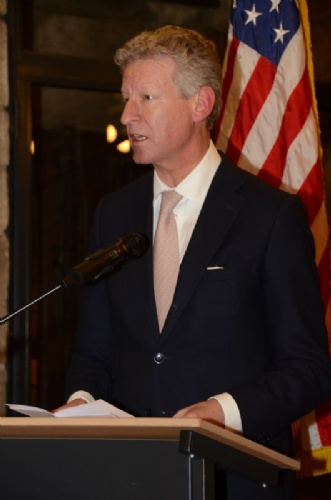
Hieronder de tekst van zijn toespraak:
"Dear Ambassador Gutman,
Mayor of Ieper Jan Durnez,
Chairman of the In Flanders Fields Museum, Alderman Jef Verschoore,
Officials of the In Flanders Fields Museum,
Honoured Guest, Ladies and gentlemen,
Very soon one hundred years, a full century will have passed since the outbreak of the First World War, a conflict that will always be remembered as one of the darkest periods in the history of mankind. In August 1914, this country was overrun by the German Army heading to France. What began as a fast and mobile war evolved very quickly to one of the bloodiest stalemates that humanity has ever known.
This country and its people were hit particularly hard. Almost the whole of Belgium was occupied. A substantial part of the population faced deportation, deprivation and starvation.
But it’s often during the most challenging and difficult times that the bravest men know their finest hour. Herbert Clark Hoover was such a man, a philanthropist with exceptional organizational skills. A man who took action when this was needed the most, the right man on the right spot.
At the outbreak of the conflict, he helped to ensure 120,000 fellow American citizens who were stranded in Europe a safe return home. Afterwards, he focused on helping the citizens of the occupied countries. As head of the Commission for the Relief of Belgium or CRB, Hoover undertook an unprecedented relief effort, in collaboration with leading Belgians as Emile Francqui, head of the Belgian National Relief and Food Committee or simply National Committee. The cooperation between these two organizations was an exceptional one.
The CRB obtained and imported millions of tons of food for the National Committee to distribute, and watched over it to make sure the German Army didn’t confiscate the food. The CRB grew out to become a truly independent relief organization, with its own flag, vessel fleet, factories, mills and railroads. Furthermore, providing an entire country with food relief not only demanded a strong organizational talent, but also a diplomatic one. Not all parties in the conflict had a friendly disposition towards the CRB. Hoover traveled more than forty times across the North Sea to persuade the belligerents to permit food transports to Belgium.
With his actions, Herbert Hoover became a hero in the eyes of the Belgian population. The flour sacks used by the CRB became legendary. They were not only used by the Belgian population as clothing, but, as one of the few means of communication they had at their disposal to express their gratitude towards the Americans, they even embroidered messages on the bags.
Even after the conflict had come to an end, he felt his work here wasn’t done. He used the remaining budget of the CRB to help this country to rise again from the ashes. The best known example of his actions is undoubtedly the reconstruction of the university library in Leuven. To this day, his memory lives in various organizations such as the Hoover Committee, the Belgian American Educational Foundation and the Francqui Foundation for the support of basic research in Belgium.
Dear guests, I can assure you that, even after a century, the gratitude of this country and its people for the actions of this extraordinary man, hasn’t waned. Also today, the link between the United States and Belgium is exceptional. We know we can always count on our most important trans-Atlantic partner, as he can always count on us. But, it is important that our gratitude goes beyond words. That is why, as Belgian Deputy Prime Minister and Minister of Defense, I see it as my duty to keep alive the legacy of men such as Herbert Hoover.
Today, Belgium contributes, wherever it is necessary in this world, to create the conditions that permit initiatives similar to the one Herbert Hoover launched a century ago. This is in my opinion the best possible way to express our gratitude and recognition to the men and women and the nations that have done so much for us in our past.
Ladies and Gentlemen,
This exhibition is part of a larger whole: our task to keep the past alive; our task to help the younger generations learn from these past experiences. However, we should not only pass on the stories of suffering and violence to the younger generations, we also ought to pay attention to the deeds of bravery and courage performed by so many men and women. To conclude, I warmly thank the US Embassy, and in particular ambassador Gutman, for his assistance in setting up this exhibition. Thank you."
Pieter De Crem - Deputy Prime Minister / Minister of Defense
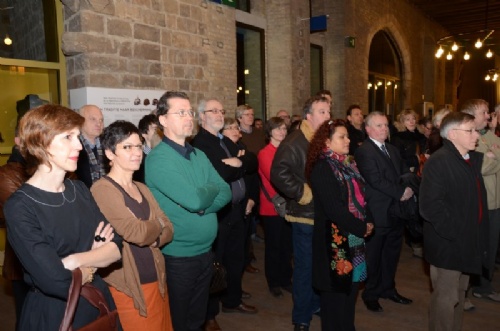
Enkele foto's van de tentoonstelling.
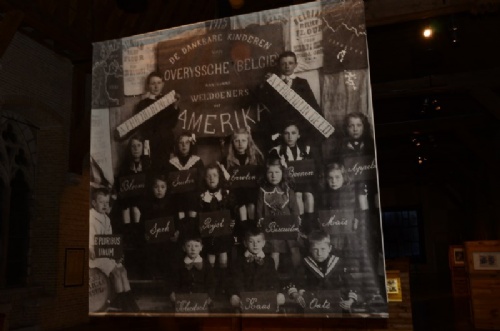
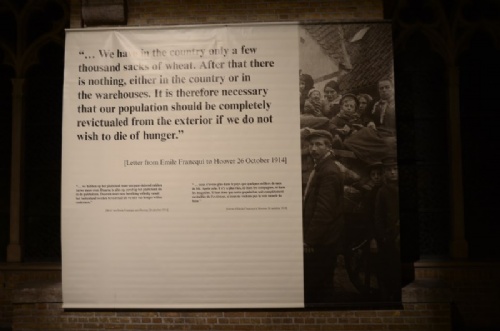
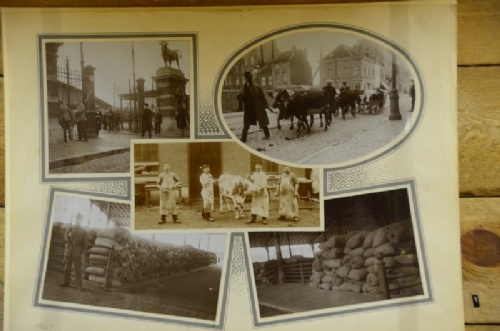
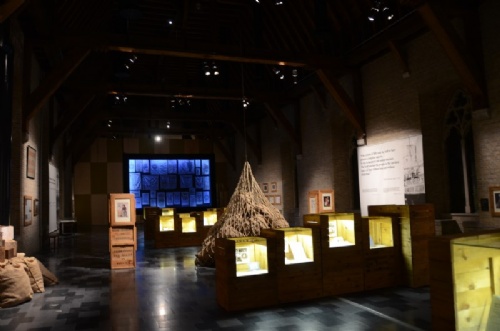
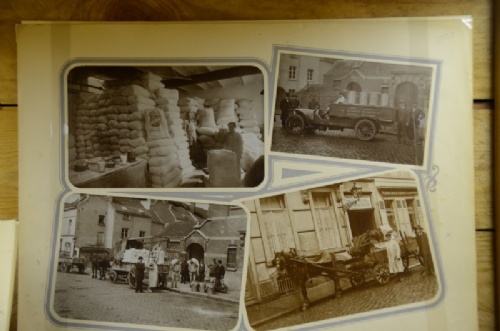
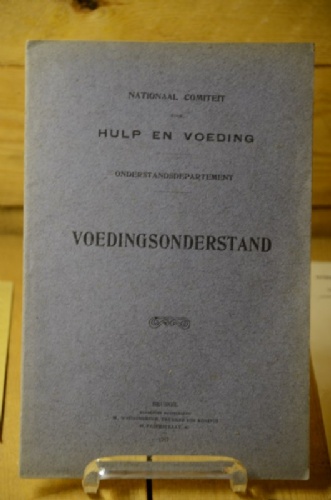
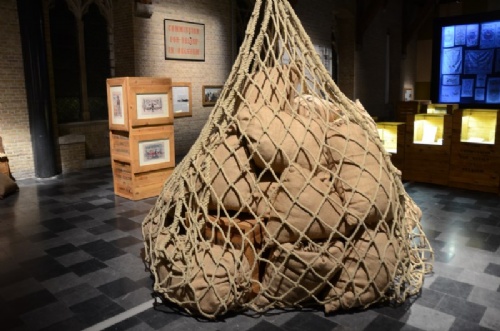
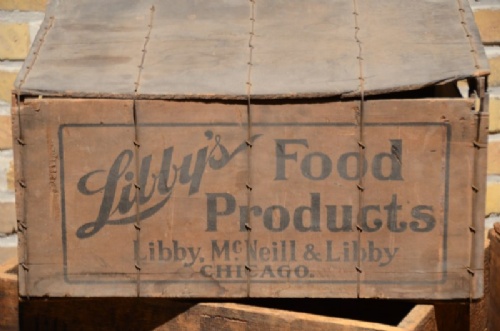
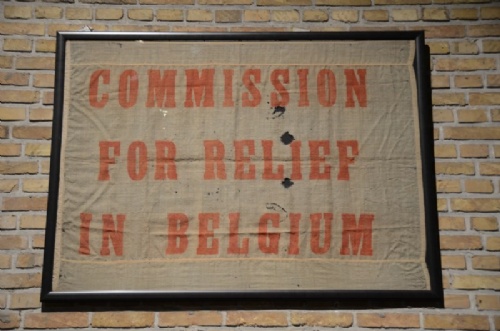
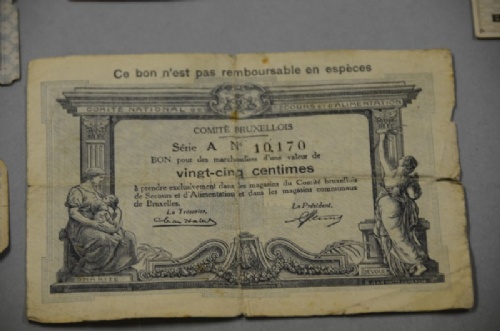
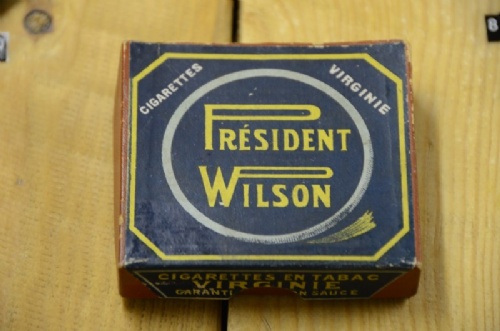
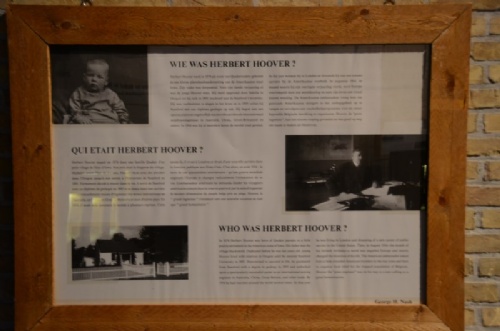
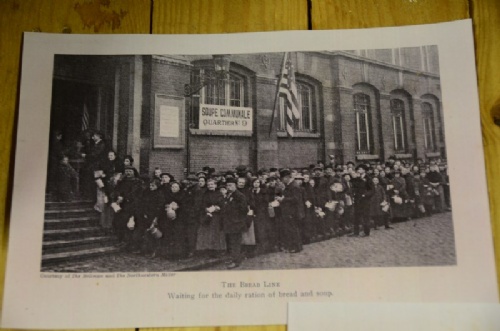
Rondleiding van de eregasten door Dominiek Dendooven van het In Flanders Fields Museum.
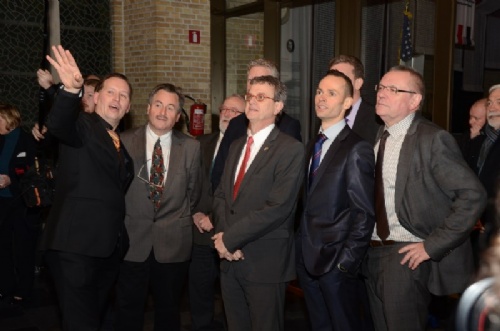
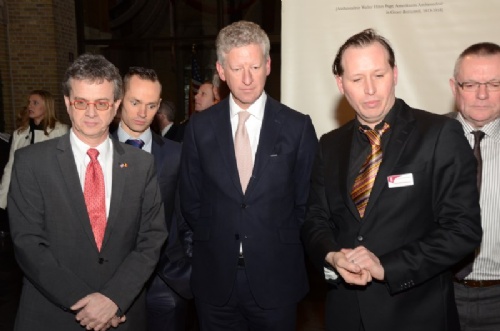
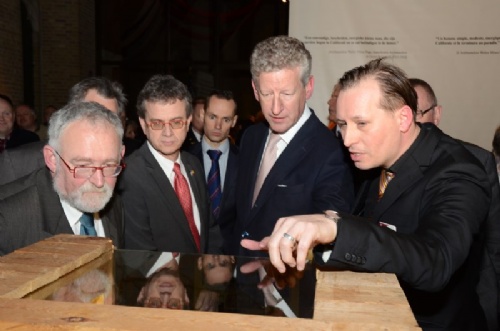
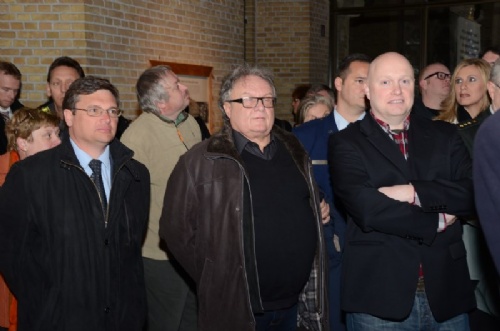
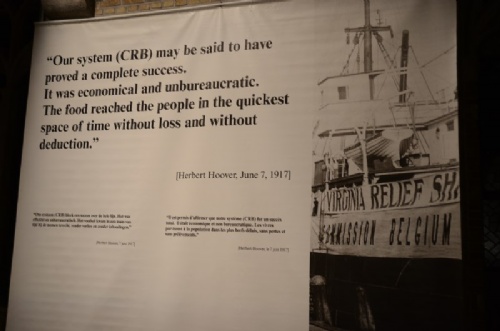
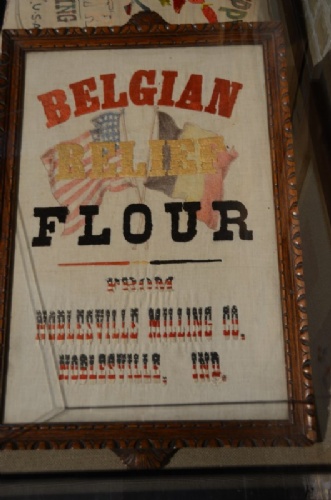
De zakken werden heel vaak versierd.
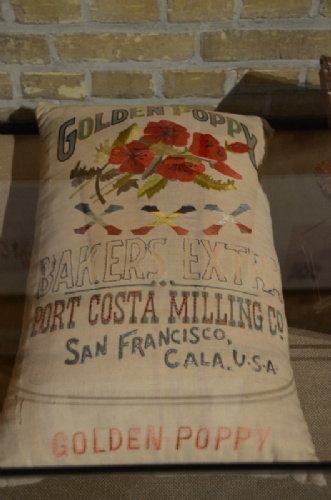
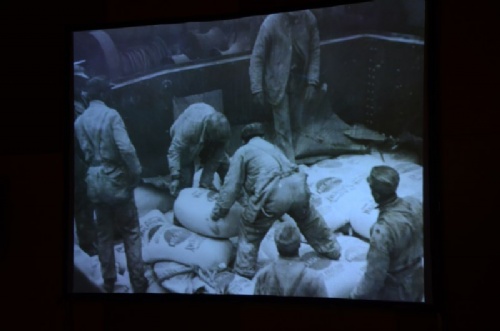
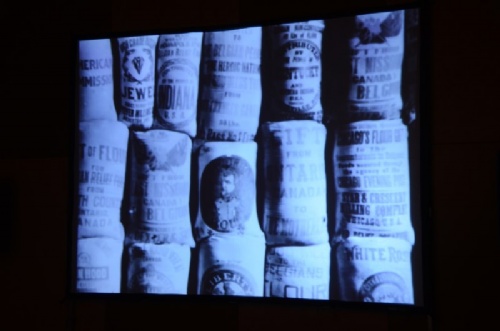
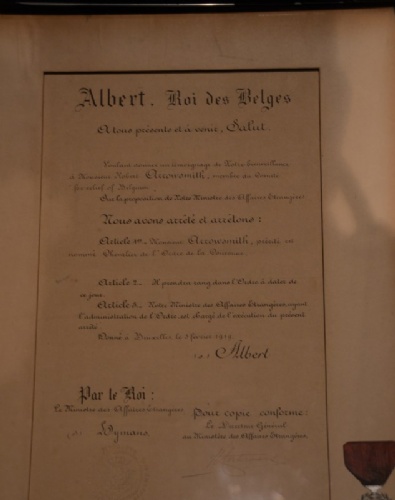
Veel pers in Ieper.
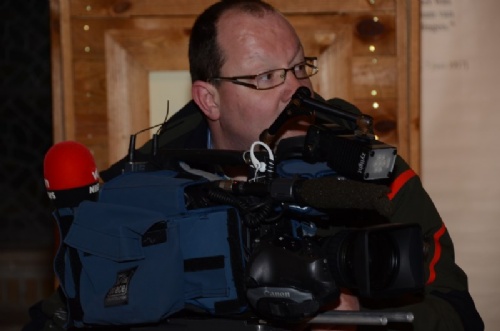
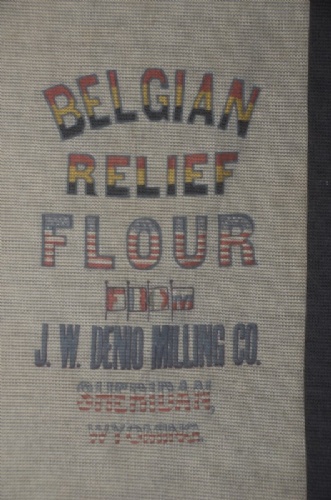
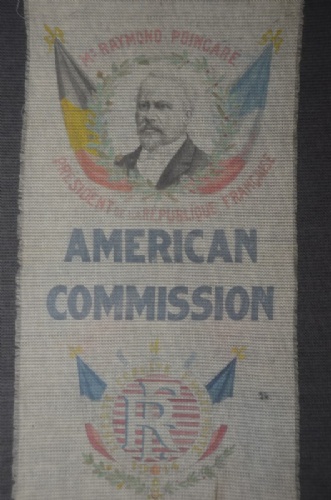
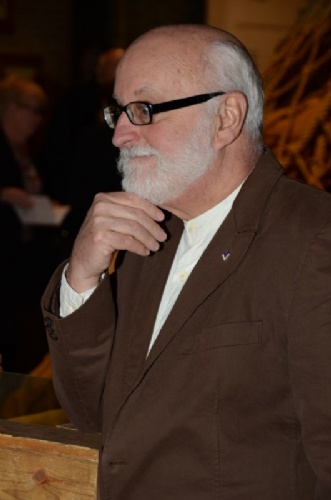
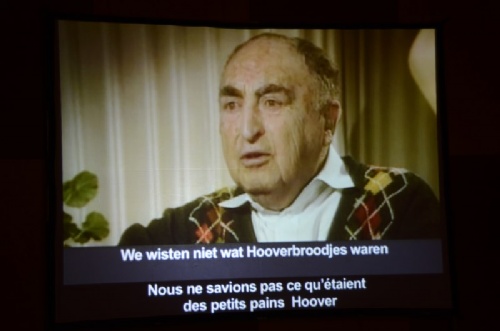
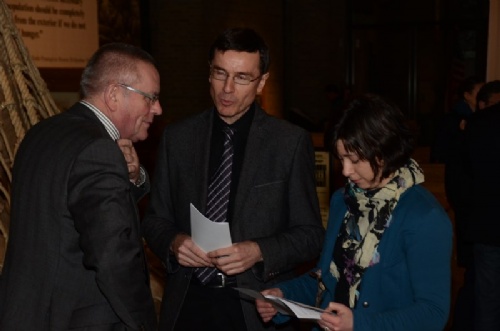
Daarna was het tijd voor de receptie.
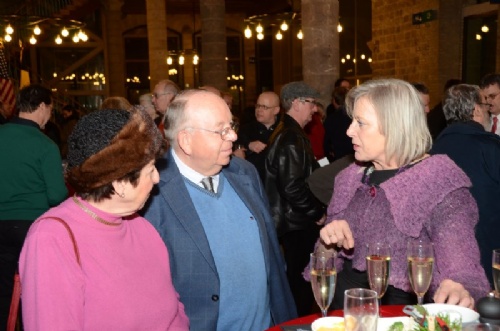
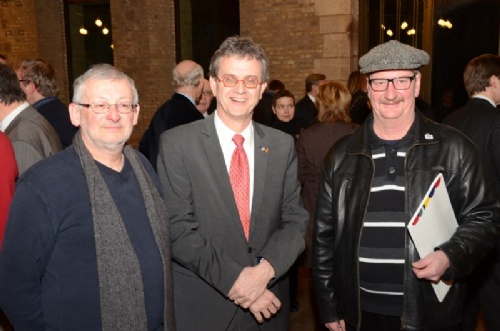
Pagina aangemaakt door Westhoek.be / WO1.be - Greatwar.be.
Klik hier als je zelf een fotopagina wenst aan te maken. Op deze pagina vind je alle info hoe je dit kunt doen.
You can always send your own page with picture(s). Click here to do so
|